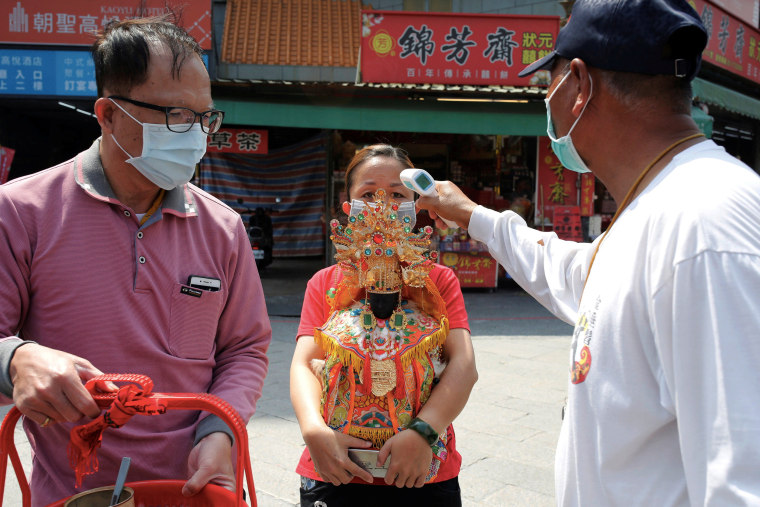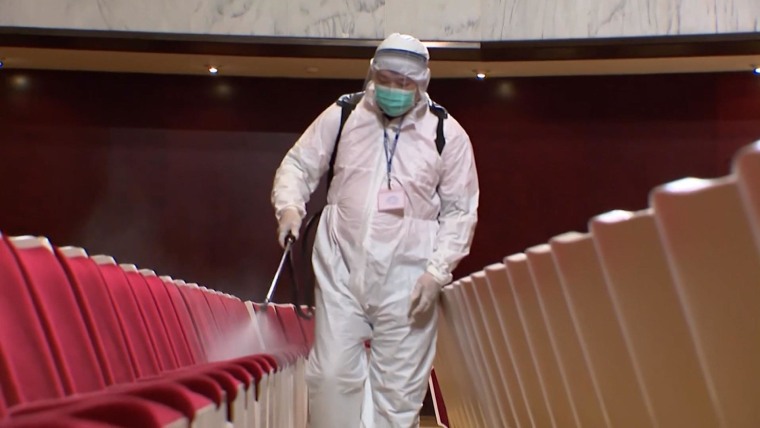Taiwan — After the lockdowns, what next?
As various countries start to ease the restrictions on movement and commerce they imposed to stem the spread of COVID-19 — or at least think about lifting them — the questions loom:
How
can the lockdowns be safely eased? Do governments have clear strategies
for restarting their economies without risking a new surge in illness?
What, in short, will the new normal look like — at least in the near term?
One economy that managed to avoid a lockdown, and which has been functioning better than many others,
is Taiwan's. The island appears to have emerged from the crisis
relatively unscathed. It managed to keep its 11 million-strong labor
force working and its economy running.
It
has recorded only about 400 cases of coronavirus and six deaths even
though it lies off the coast of China, where the outbreak was
discovered, and even after it saw a recent spike in imported cases.
But with no vaccine
in sight, Taiwan is taking no chances. And if its example is any guide,
the new normal — life without a lockdown — won’t look much like the old
normal at all.
Here’s how Taiwan does it.
For one thing, anyone arriving in Taiwan from overseas must have his or her temperature checked at the airport.
Arriving
passengers must also hand over their mobile phones so health
authorities can record the details and use the GPS signals provided by
telecoms operators to track the phone’s owners — and make sure they stay
isolated during 14 days of mandatory quarantine.
Police
show up within minutes if the reception is poor or the phone runs out
of battery. And a failure to answer the phone can prompt authorities to
send text messages such as this: "Please return home immediately.
Violations of home isolation/home quarantine regulations will result in
fines and mandatory placement. The Central Epidemic Command Center cares
about you."
Fines for violating the mandatory quarantine range from $3,333 to $333,333.
To
reduce the chances of infecting others, arriving passengers are banned
from taking public transportation and must instead use special
“epidemic-prevention taxis” to get from the airport to their quarantine facility — or from there to a hospital, if they need to see a doctor.
The
taxis look like ordinary cabs, but the drivers disinfect their vehicles
after every trip and are not allowed to take other customers.
"Only
a small number of drivers were willing to do this job," said Wang
Yu-kai, a Taipei City transportation official. "We pay them $116 a day
even if they don’t have any quarantine customers, so they won’t be
tempted to get regular customers and risk infecting others if they catch
the virus."
After a month, the drivers themselves must go into quarantine for 14 days — and so, too, must their taxis.
"They
must park the vehicle in a designated area and install GPS so we can
see if the taxi is where it's supposed to be," Wang said. "It’s to
protect everyone’s safety.”
And
it’s not only airports. Authorities at many buildings — from post
offices and banks to office towers and sports centers — check the
temperatures of employees and visitors, preventing anyone with a fever
from entering.
“Initially,
some people complained that it was inconvenient, but we have no choice.
We have to fight the epidemic,” said Jackie Liu, a manager at a sports
complex in Taipei. "If we find anyone with a fever, we notify the
government."

The
complex also requires visitors to write down their names, phone numbers
and the part of the facility they will be using — be it the gym or the
yoga rooms — to expedite the tracing of contacts should an outbreak
occur.
Schools ask parents to check
students’ temperatures daily. Teachers check at the gate if students
arrive not knowing their temperatures. Anyone with a fever must stay
home and call a hospital.
Building
security guards like Chan Wen-guang now must check the temperature of
everyone walking in; he checks 100 to 150 people daily.
“Anyone
with 37.5 degrees (99.5 degrees Fahrenheit) can’t work and must go to
the doctor," Chan said. "Everyone is very cooperative; they come
straight to my desk. I’m the most important gatekeeper."
Businesses
with walk-in customers are eager to reopen. But to prevent infections
and ensure that customers feel safe eating out again, Taiwan’s shops and
eateries are sanitizing their facilities frequently and thoroughly.
“Even
before the epidemic, our staff wore masks and disinfected the tables at
the end of the day,” said Chen Bo-wei, a Taiwanese restaurant manager.
“But now we wipe the tables and other common areas, such as the
bathrooms, whenever we have time."
Some restaurants like his have taped a big X on every other chair so that no one sits next to - or across from - anyone else.
Customers are advised to wash their hands and avoid talking to one another.
Business has fallen by 20 percent, Chen said. But the restaurant is receiving more takeout and delivery orders than before.
A
sufficient supply of face masks and hand sanitizers will be needed if
communities under lockdown are to reopen safely — and if people are to
feel safe going out again, as Taiwan’s example shows.
Gotten from another source


Comments